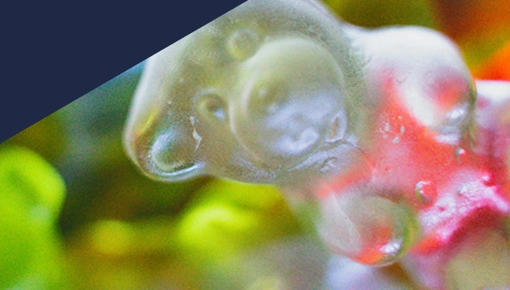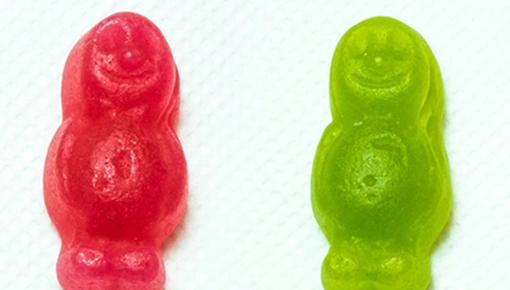As sustainability becomes more of a priority for the manufacturers of the UK and Germany, there's an increasing focus on the reduction of waste, lowering of energy consumption, and optimisation of production efficiency. Regulatory frameworks such as the UK’s Net Zero Strategy and Germany’s Energieeffizienzgesetz (Energy Efficiency Act) set strict targets for industrial energy reduction, pushing manufacturers to adopt eco-friendly solutions while maintaining cost efficiency.
Gaining a competitive advantage through sustainable manufacturing
With 80% of consumers in the UK and Germany stating they prefer brands with strong sustainability commitments (Euromonitor, 2025), investing in waste reduction, energy efficiency, and production optimisation is not just an environmental decision—it is a business strategy.
Ishida is at the forefront of helping manufacturers achieve these goals, offering precise weighing technology, energy-efficient operations, and compact equipment designs that drive sustainable manufacturing without compromising productivity.
Reducing Waste with Precision Weighing
Food waste remains a significant challenge in the confectionery and snack sectors, with over 1.5 million tonnes of food waste being produced annually in UK manufacturing (WRAP, 2025). Ishida’s advanced multihead weighers are designed to minimise giveaway and optimise portion control, helping manufacturers cut product loss by up to 20%.
Based on more than 50 years of combination-weighing know-how, the CCW-AS stands as a prime example. Integrated with unique weighing controls, this electrical platform delivers market-leading accuracy. Integrated with newly developed radial feeders, the CCW-AS has more conveying power for the processing of larger volumes than conventional feeders. The Advantage Series of weighers also have highly responsive feeders, enabling the optimum quantity of product to be delivered to each weigh hopper for increased efficiency.
Such high-accuracy weighing solutions ensure that each portion meets exact specifications, reducing raw material waste and unnecessary overfill. With real-time monitoring and adjustment capabilities, manufacturers can also optimise ingredient use and prevent excessive product loss.
Such benefits have been realised by brands such as Ritter Sport, with a reported 20% reduction in product giveaway after implementing Ishida’s 24-head multi-head weighers. Costs have also been significantly reduced (Ritter Sport Operational Review, 2024).
Manufacturing and Sustainability: Cutting Costs and Energy Consumption
With 77% of European consumers willing to pay more for sustainably produced confectionery (Euromonitor, 2023), manufacturers are under pressure to reduce waste, optimise energy use, and improve efficiency. Technologies such as Ishida’s Sentinel 5.0 are making a significant difference, with the smart factory system delivering a 15% efficiency boost.
The integration of automated production lines is also helping confectionery manufacturers in the reduction of energy waste. Such systems enable manufacturers to optimise machine usage, minimise downtime and enhance general line efficiency. Smart factory systems ensure optimal equipment performance, with energy use and costs being reduced.
The CCW-AS also delivers in terms of sustainability, with new features such as Optical Charge Control and radial feeders enhancing product feeding and maximising production output. The integration of a new motor drive control means that the CCW-AS uses 20% less power than the previous model.
These key benefits have been realised in the automation of production scheduling, with peak energy demand being reduced by 10%. The introduction of heat recovery and intelligent cooling systems has also led to a significant reduction in energy use, particularly in chocolate tempering and cooling tunnels.
Confectionery sector predictions
AI and automation are increasingly recognised as vital to the reduction of waste and optimisation of energy use. Indeed, the integration of automated portioning and ingredient control systems has enabled a 20% reduction in material waste from high-output confectionery plants. AI-driven energy-management solutions have also reduced power consumption by 15%, enabling manufacturers to lower costs and meet sustainability targets (CRB Group, 2024).
Automated production systems enhance precision, ensuring accurate ingredient measurement, portioning, and packaging, which significantly reduces material waste. Advanced multi-head weighers have helped manufacturers reduce raw material giveaway by 20%, lowering costs and ensuring greater portion consistency (KatPro Tech, 2024).
Automated inspection and rejection systems have also been designed to prevent defective products from progressing through the production line. The integration of such systems has led to a 15% reduction in production waste from confectionery plants (Confectionery News, 2024).
Looking to a smarter future
The transformative effects of automated systems and smart factories are becoming increasingly clear in the confectionery sector. Companies integrating such advanced technologies are better able to minimise food waste, enhance energy efficiency, and increase productivity with no sacrifice of product quality. Investment in intelligent automation is also reducing costs and enhancing sustainability, with confectioners able to meet regulatory and consumer demands.
Now is the time to explore the range of Ishida innovations and realise the potential of production line transformation.


